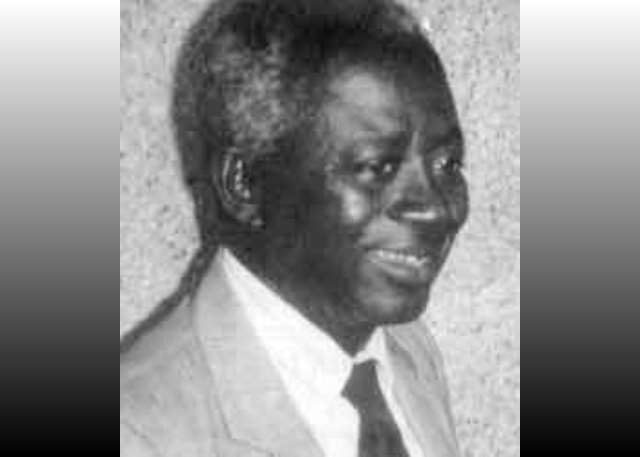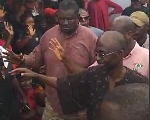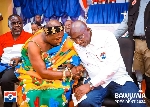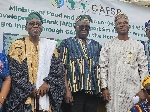Razak Kojo Opoku: NPP never rejected Prof. Adu Boahen on tribal or religious grounds
 Late Prof Adu Boahen
Late Prof Adu Boahen
Razak Kojo Opoku, Founding President of the UP Tradition Institute and a leading member of the New Patriotic Party(NPP), has dismissed claims that tribal or religious considerations played any role in the rejection of Prof Albert Kwadwo Adu Boahen as the New Patriotic Party’s (NPP) flagbearer ahead of the 1996 presidential election.
Prof. Adu Boahen, an Ashanti from Juaben but born in Oseim in the Eastern Region, made history as the first presidential candidate of the NPP under the 4th Republican Constitution.
Widely credited with breaking Ghana’s “culture of silence,” he co-founded the Movement for Freedom and Justice and served as its first chairman.
He contested the 1992 presidential election on the NPP’s ticket, polling more than 1.2 million votes (30.29%).
He lost to the NDC’s Jerry John Rawlings, who secured 58.4% of the vote.
Despite the defeat, Adu Boahen’s performance was significant, considering the hostile political climate as Ghana transitioned from military to democratic rule.
Before his 1992 candidacy, Adu Boahen emerged victorious in the NPP’s internal primaries, securing 56.6% of delegate votes, ahead of Dr. Dsane Selby (17.3%) and John Agyekum Kufuor (16.5%).
However, in the run-up to the 1996 elections, Adu Boahen was rejected by NPP delegates, who instead elected John Agyekum Kufuor as flagbearer.
The results of the 1996 primary were: Kufuor – 1,034 votes (51.99%), Adu Boahen – 710 votes (35.7%), and J.H. Mensah – 110 votes (5.53%).
Addressing this historical development, Dr Opoku stressed that Prof Adu Boahen’s rejection had nothing to do with his tribe, religion, or regional background.
“Did NPP delegates reject Prof. Adu Boahen in 1996 because of his tribe or religion or being from the Ashanti Region with a base in the Eastern Region? Certainly not,” he stated.
According to Dr Opoku, NPP’s history demonstrates that a second or third attempt at the presidential slot has never been an entitlement or consolation prize.
Instead, delegates reward merit and elect candidates they believe can best lead the party to victory.
He cautioned against what he described as “emotional blackmail tactics” in contemporary politics, where some candidates may seek sympathy by framing themselves as victims of tribal, religious, or demographic bias.
“Politics and democracy are all about competition, and cooperation after competition,” he added.
Source: classfmonline.com/Cecil Mensah
Trending News

Asiedu Nketia excapes attempted NPP beating by 'whiskers' at late Ernest Kumi's funeral
17:37
rCOMSDEP intensifies community engagement in Western and Central Regions
13:35
NADMO warns communities to brace for controlled spillage of Bagre Dam
12:42
IGP leads security delegation to Savannah Region after deadly communal clashes
03:38
Treat my earlier statement as a wake-up call-GFL boss urges gov't
07:39
Chief of Staff advocates stronger agricultural integration in schools
17:23
I have been the most effective Vice President in Ghana’s history – Bawumia
13:02
Gov’t launches US$20m agro-input distribution project in Northern Ghana
12:28
PAC Chairperson steps aside from 2024 audit proceedings over conflict of interest
03:24
NPP lost 2024 election because of bad economic practices– Razak Kojo Opoku
07:03




